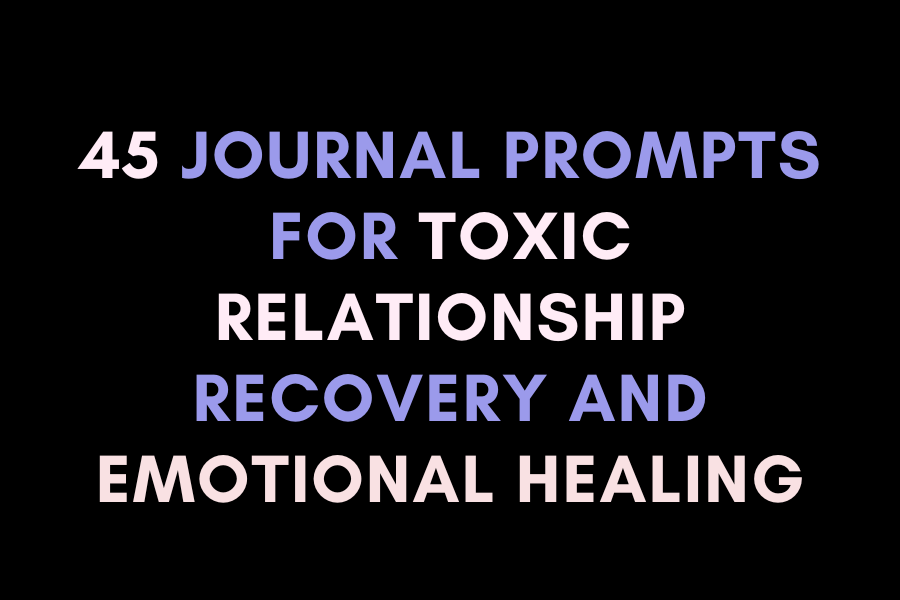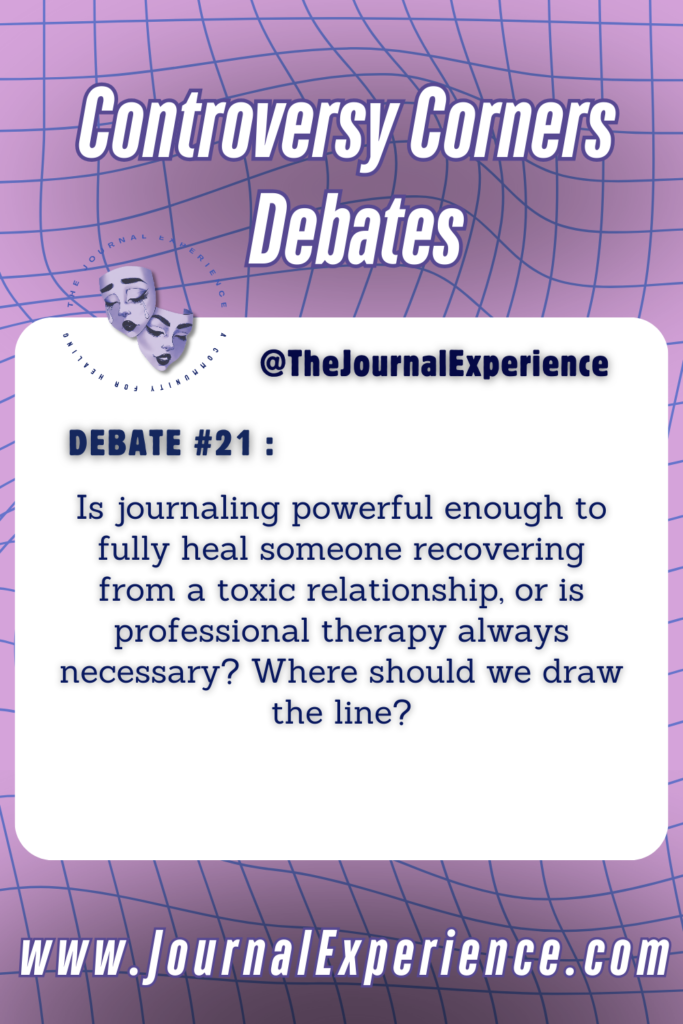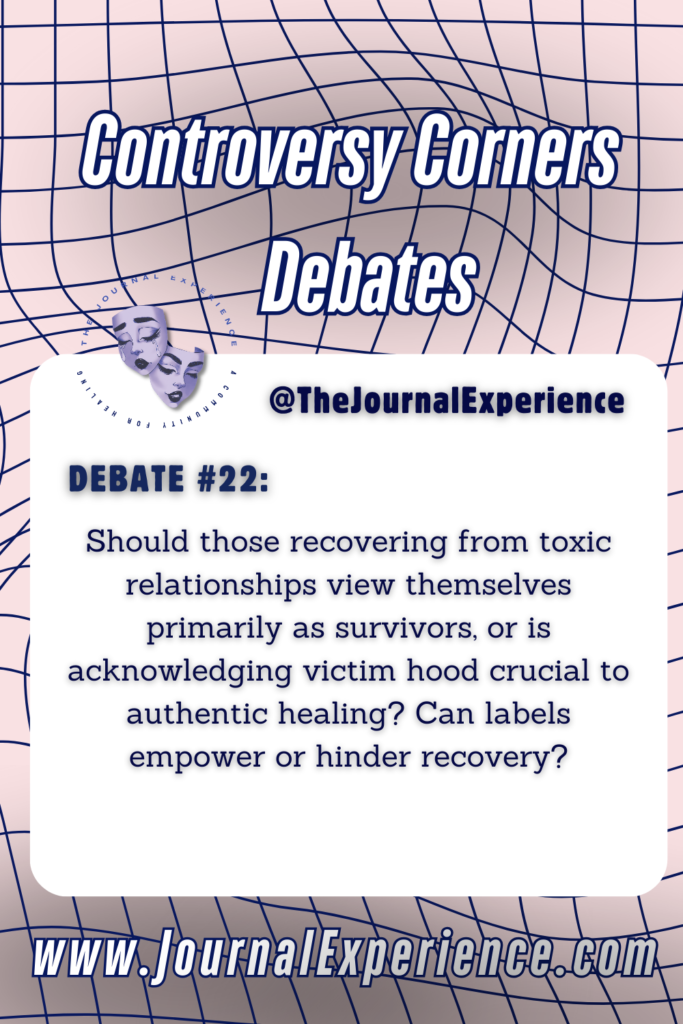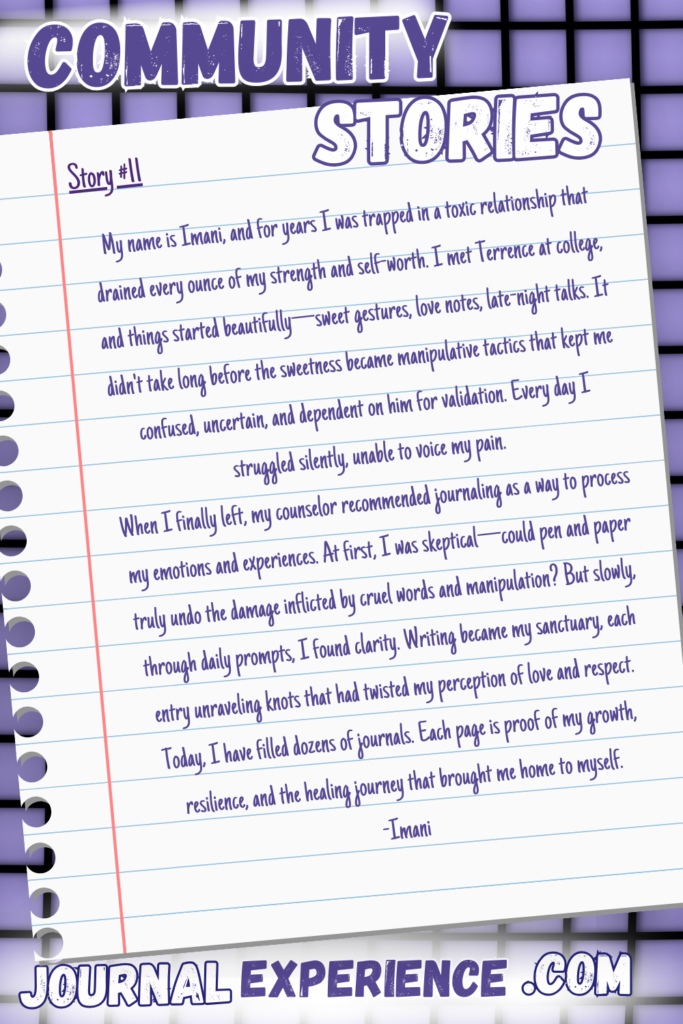Recovery from such relationships isn’t just about moving on; it’s about healing from the inside out. It’s about understanding what happened, why it affected you so deeply, and how you can reclaim your inner strength.

This kind of healing takes time, and it’s rarely linear—there are moments of clarity, but also setbacks that can feel discouraging.Journaling plays a powerful role in that healing process.
It offers a safe, judgment-free space to untangle thoughts, express emotions, and begin seeing your story from a place of empowerment rather than pain. It allows you to explore your experiences without shame and begin rewriting the narrative from a place of truth.
This post offers 45 healing journal prompts designed specifically for individuals recovering from toxic relationship dynamics and seeking emotional clarity.
Guided Prompts for Toxic Relationship Recovery
Writing Exercises to Navigate the Recovery Journey
Healing begins with acknowledging the pain and the patterns that shaped your experience. By writing through the trauma, confusion, and emotional aftermath, you allow yourself to see the truth of what happened—and why it no longer defines you. These prompts will help you examine the toxic dynamics, recognize emotional triggers, and begin identifying the red flags that may have gone unnoticed.
Journal Prompts
- What moments in the relationship made you feel small, silenced, or invisible?
- How did the other person respond when you set a boundary?
- What were your most common emotional reactions in this relationship—anger, fear, guilt, sadness—and what triggered them?
- List the red flags you overlooked in the beginning. What made you ignore or excuse them?
- When did you start to feel disconnected from yourself, and what contributed to that disconnection?
- What patterns did you notice that repeated themselves throughout the relationship?
- What roles did you play in trying to maintain the relationship?
- How did the relationship affect your mental health day-to-day?
- What was the hardest part about walking away or ending the relationship?
- How has your perspective changed since leaving the relationship?
Writing Tip
Take breaks when needed—writing about toxic experiences can be emotionally intense. Pause, breathe, and return when you feel safe and grounded.

Journal Prompts for Relationship Insight & Advice
Understanding what a healthy relationship looks and feels like is key to breaking the cycle of toxicity. This section encourages reflection on your values, what you truly desire in a relationship, and the lessons you’ve learned through experience. These prompts will help you rebuild a foundation of trust, not just with others—but with yourself.
Journal Prompts
- What does a healthy relationship mean to you now?
- Write about the kind of love, respect, and support you truly deserve.
- What qualities do you now see as non-negotiable in a partner?
- What relationship advice would you give to your past self?
- What valuable lessons did this relationship teach you about your needs and boundaries?
- How have your relationship standards changed since this experience?
- What warning signs will you look out for in future relationships?
- How can you begin to trust again without losing yourself?
- What does mutual respect look like in your relationships moving forward?
- What kind of relationship do you want to model for others (e.g., children, friends)?
Clarity Exercise
Write a list of your top 5 personal relationship values and why each one is essential for your well-being.
Improving Mental Health Through Journaling
Recovering from a toxic relationship often involves untangling layers of emotional damage, including negative self-talk and diminished self-esteem. Journaling can be used as a healing balm—building your confidence, anchoring you in the present moment, and releasing inner narratives that no longer serve you.
Journal Prompts
- What hurtful beliefs about yourself came from this relationship, and are they true?
- Write a compassionate letter to yourself from the perspective of someone who loves and accepts you fully.
- What are three things you love about who you are becoming?
- Create an affirmation that reflects your strength and growth.
- What practices help you feel emotionally grounded when you’re overwhelmed?
- How has writing helped you feel more in control of your emotions?
- What self-care practices help you reconnect with your worth?
- What fears about your future still linger, and how can you soothe them?
- When do you feel most safe, calm, and supported?
- What would emotional freedom look like for you today?
- What are three kind things you can say to yourself right now?
- How do you define emotional safety and what does it look like for you?
Grounding Exercise
Choose one affirmation from above and write it ten times. Then journal how it makes you feel in your body and your heart.

Personal Growth Strategies in Recovery
As the fog begins to lift, it’s time to reconnect with the parts of yourself that may have been buried or forgotten. This section is designed to help you rediscover who you are outside of the relationship, dream about the future, and rewrite your story with courage and self-compassion.
Healing after a toxic relationship doesn’t happen overnight, but every small act of self-love adds up. Rebuilding your sense of identity can feel overwhelming at first—especially if your sense of worth was tied to that relationship—but it’s also an opportunity to rebuild a stronger, truer version of yourself. Journaling during this stage can anchor your growth and help you stay intentional as you take steps forward. You are not just recovering—you’re becoming.
Journal Prompts
- Who were you before the relationship, and who are you now?
- What hobbies, goals, or passions would you like to revisit or try for the first time?
- In what ways have you already started rebuilding your identity?
- What are your hopes for your emotional well-being in the next 6 months?
- Write a mantra or motto you want to live by during your recovery.
- How can you show up for yourself daily with kindness and care?
- What boundaries are you currently setting or practicing?
- What does emotional independence mean to you?
- What steps are you taking to create the life you want?
- How can you celebrate your growth, even when it feels slow?
- What does your ideal future look like now that you’re no longer tied to that relationship?
- What are you most proud of in your healing journey so far?
- What kind of love are you now willing to accept—and what kind will you never accept again?
Empowerment Exercise
Write your personal mission statement—a few sentences about who you are, what matters to you, and the life you’re committed to building post-recovery.
Overview
Recovering from a toxic relationship is a deeply personal and often nonlinear process—but journaling can be a guiding light through it all. By writing your truth, unpacking the pain, and cultivating a vision for your healing, you make space for self-awareness, strength, and inner peace to take root.

These 45 journal prompts are just the beginning. Keep writing, keep reflecting, and keep choosing yourself. The peace you’re searching for isn’t somewhere out there—it’s already within you, waiting to be reclaimed.
Explore exclusive self-guided recovery tools, expert-crafted prompts, and healing-focused journal collections inside The Journal Experience. Whether you’re just beginning or deep into your healing, you’ll find the support you need to transform pain into power. Join us in creating a life built on clarity, confidence, and emotional freedom.